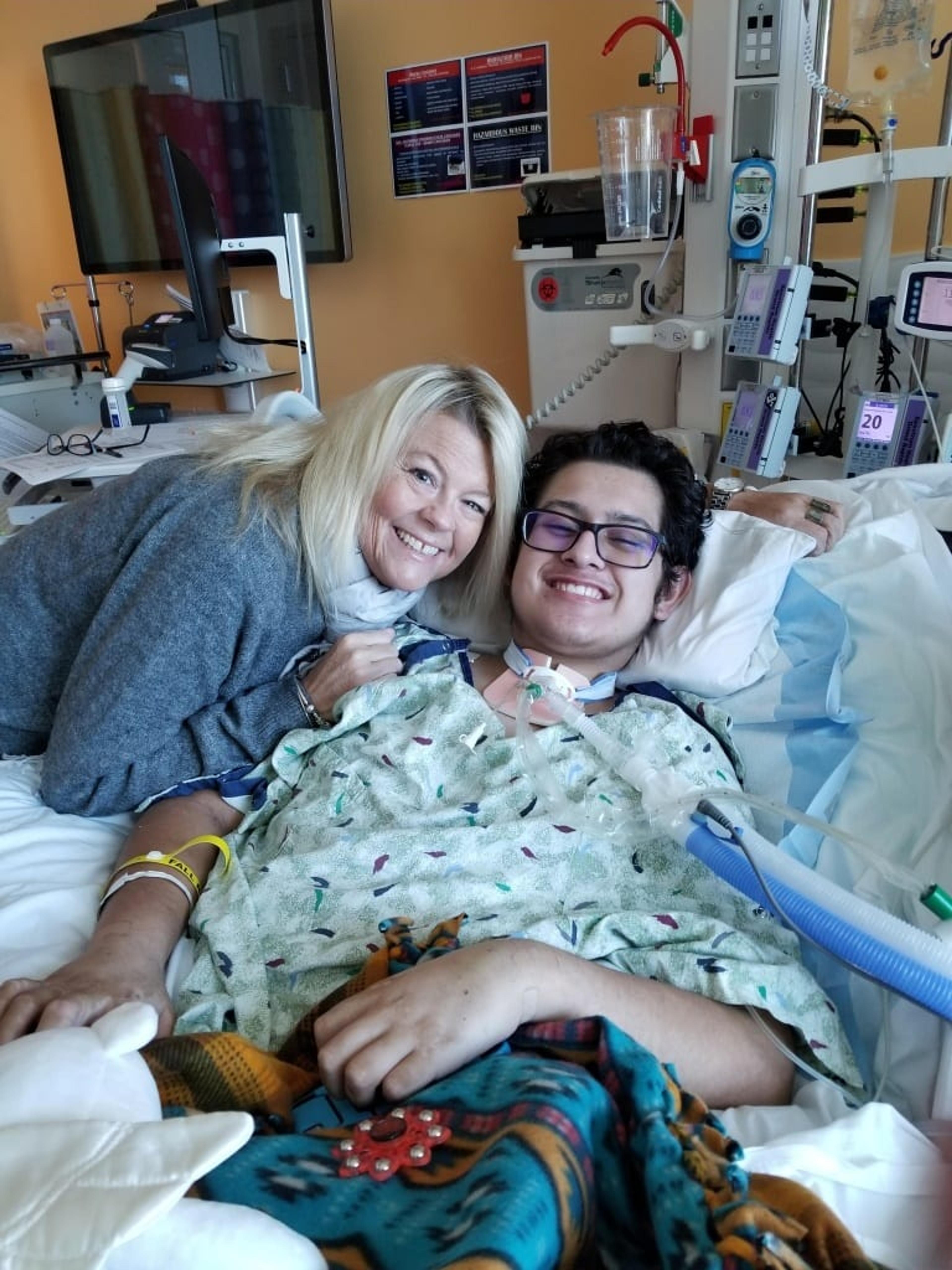Gala Raising Funds to Expand Pediatric Epilepsy Treatment in West Michigan
Julie Bitely
| 3 min read

Caroline Rich helps children with epilepsy every day. She sees the fear in parents’ eyes as they face a new diagnosis. “Parents are having a normal day and then all of a sudden, something changes and they’re in the emergency room and someone’s saying the word ‘seizure,’” she said. “And they’re thinking, ‘oh my gosh, my life is about to change.’” Rich is a nurse practitioner in the Pediatric Neurology Sciences Program at Spectrum Health’s Helen DeVos Children’s Hospital in Grand Rapids. Even though she sees epilepsy every day, she knows it’s new and scary for every family she encounters. Through extensive testing and treatment, a young patient’s epilepsy medical team becomes a second family of sorts. “Once they’ve established care here, they don’t want to leave,” Rich said.
L to R: Caleb Bupp, MD; Sara Mendez; Caroline Rich, NP; Pedro Mendez; and Surender Rajasekaran, MD. The Mendez family sought epilepsy treatment for their son, Diego (pictured above with Rich), at Helen DeVos Children's Hospital. That’s why she’s excited about plans to expand and build upon the hospital’s current neurosciences offerings, starting with an increased focus on epilepsy services. With more treatment options, no West Michigan child will have to travel to places like Detroit and Cincinnati for care. The Spectrum Health Foundation is raising funds for the endeavor through their annual gala, scheduled for Saturday, April 21. Blue Cross Blue Shield of Michigan and Blue Care Network are sponsors of Gala 2018. In West Michigan, about 6,000 kids receive an epilepsy diagnosis every year. Out of those children, 25 percent have very difficult-to-control seizures that do not respond to medication. This equates to about 1,500 kids. For these patients, alternative treatments such as epilepsy surgery, devices and special diets may be beneficial. Through gala funding, the goal is to add additional resources including research support staff, program coordinators, nurse educators, and needed technology and equipment. Additional funding will support physician training and will help purchase special imaging equipment to better aid in determining epilepsy surgical candidates. All of the enhancements will allow more patients to keep their care in-house. Epileptic seizures are caused by an abnormal electrical discharge in the brain. An EEG (electroencephalogram) and other imaging methods can help determine where in the brain a problem is originating from. Rich said once a cause is narrowed down, treatment can include medication, diets and in some cases, surgery. With a rigorous process from initial diagnosis through treatment, keeping a patient’s care team consistent is a comfort for families, Rich said. Regardless of how they get there, Rich said getting seizures under control is life-changing. Parents can breathe easier and young kids are able to do things their peers do without worry. Simple joys of adolescence like sleepovers can be out of reach for epilepsy patients, and giving back normalcy is a rewarding part of the job for Rich. She said her young patients are particularly equipped to move forward and resume a normal, healthy life. “Kids are resilient,” she said. Learn more about the Spectrum Health Foundation and Gala 2018. If you enjoyed this post, you might also like:





